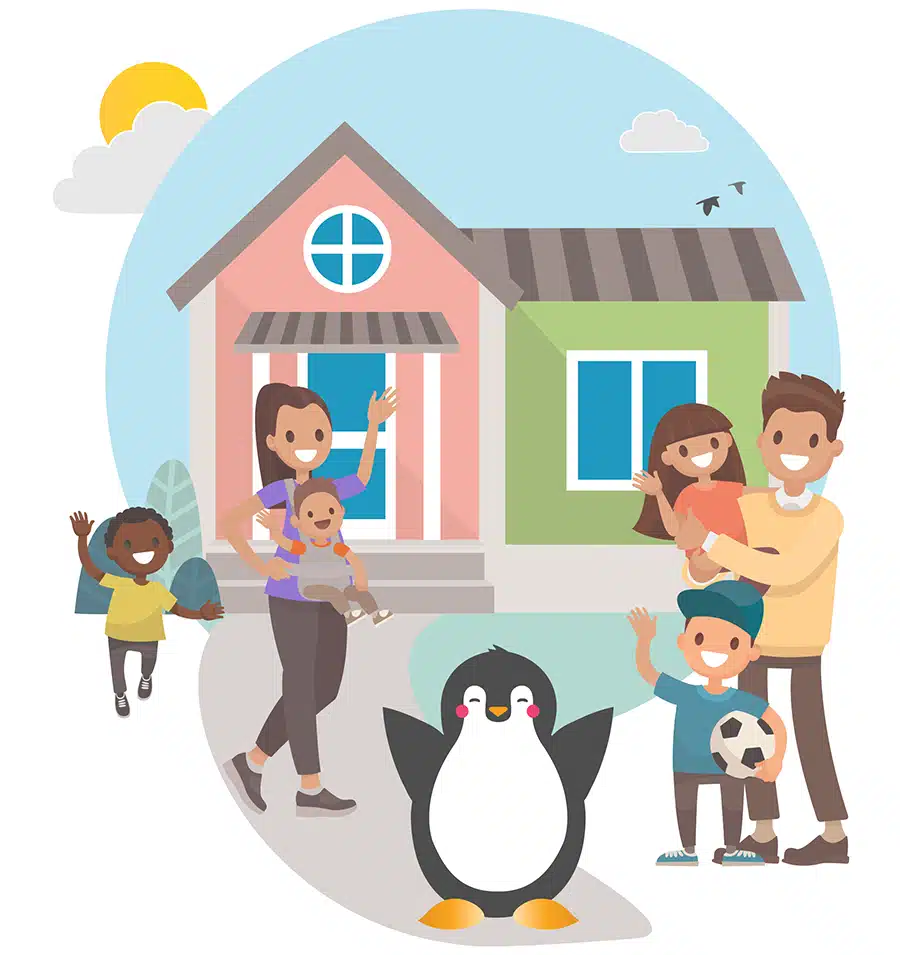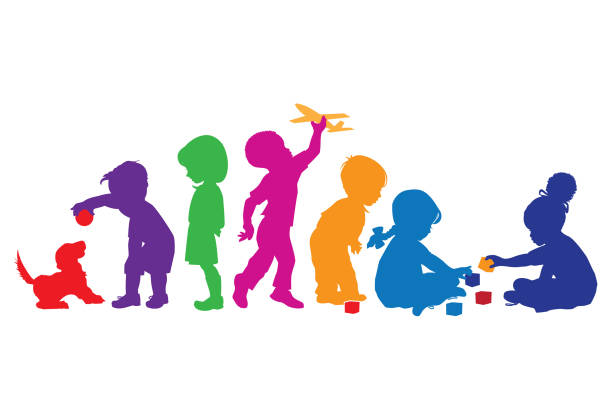What Makes Childcare North York Convenient For Working Parents
The Function of Day Care in Fostering Social Skills and Early Understanding
Daycare works as a significant setting for young kids, assisting in crucial social communications that advertise early knowing. In this organized setting, kids involve with peers and caregivers, creating important interaction and collaboration skills. As they navigate play and numerous tasks, they learn to resolve disputes and construct emotional intelligence. Recognizing the subtleties of these interactions discloses the extensive effect childcare carries a kid's advancement, forming their future relationships and academic readiness. What specific skills do children acquire in this setup?
The Significance of Social Communication in Day Care
While several parents acknowledge the importance of very early childhood years education and learning, the role of social communication in childcare is usually ignored. Day care settings offer children with indispensable possibilities to involve with peers, promoting crucial social skills. During these developmental years, children learn to browse numerous social dynamics, such as sharing, collaboration, and problem resolution. Communicating with diverse age and personalities improves their capability to adjust to different atmospheres and establish compassion in the direction of others.

Building Communication Abilities Via Play
Play functions as a powerful medium for youngsters to construct critical communication skills in day care setups. With different play tasks, children engage in conversations, express their thoughts, and discover to listen to others. Parlor games, as an example, motivate them to utilize language in various contexts, advertising vocabulary growth and understanding of social hints.

Furthermore, narration throughout play enables kids to convey feelings and ideas, aiding them establish narrative skills and confidence in their spoken expressions. Overall, play not only acts as a pleasurable activity but likewise as an important system for creating the interaction skills needed for successful social interactions in later life.
Urging Teamwork and Synergy
Collaboration and team effort are necessary abilities that children can grow in childcare environments. Via various group activities, such as constructing projects or joint video games, kids learn to share responsibilities and job toward typical objectives. These interactions cultivate an understanding of the importance of paying attention to others, negotiating roles, and endangering when essential.
In day care settings, caregivers typically create opportunities for children to involve in teamwork by motivating them to take part in group jobs. This not only helps kids create social bonds yet likewise grows a feeling of belonging and community.
As they navigate these participating experiences, youngsters obtain important understandings right into the dynamics of dealing with peers. They learn to appreciate varied viewpoints and acknowledge that each member adds distinctively to the group effort. Inevitably, these early lessons together and teamwork lay the groundwork for much healthier relationships and reliable partnership in future social and academic setups.
Structured Discovering Activities and Cognitive Development
Structured discovering activities play an integral duty in cultivating cognitive growth in little ones (Daycare North York). These tasks, that include challenges, narration, and hands-on experiments, stimulate crucial reasoning and analytic abilities. In a day care setup, structured discovering encourages children to engage with their peers, enhancing their capacity to process information and comprehend various principles
With led play and interactive jobs, kids establish fundamental abilities such as numeracy and proficiency. Activities centered around numbers can aid children realize mathematical principles, while storytelling improves language acquisition and understanding. In addition, structured understanding allows instructors to evaluate developmental progress and tailor activities to specific learning requirements.

Including a diverse range of structured tasks not only advertises cognitive growth but check that additionally prepares youngsters for future scholastic success. By providing a well balanced environment that fosters expedition and questions, daycare programs play a necessary duty in shaping the cognitive capabilities of young learners.
Cultivating Psychological Knowledge and Self-confidence
Emotional knowledge and confidence are crucial elements of a kid's advancement, complementing the cognitive skills promoted via structured learning tasks. In childcare settings, children are provided with possibilities to express their emotions and participate in social interactions, which are essential for constructing emotional awareness. Through assisted play and team activities, children learn to recognize their sensations, recognize those of others, and establish compassion.
In addition, communication with peers and caretakers helps to grow self-confidence and durability. Positive support and motivation from adults equip children to take threats and face obstacles, fostering a sense of accomplishment. As they navigate social characteristics, children construct confidence in their capabilities to connect, team up, see this site and fix problems - Child Care Center. This nurturing environment permits the gradual growth of emotional intelligence, which is necessary for future interpersonal relationships and overall well-being. Because of this, daycare plays a significant role in cultivating both emotional knowledge and confidence in young kids
Often Asked Inquiries
How Can Moms And Dads Choose the Right Daycare for Their Kid?
Moms and dads must consider variables such as location, team certifications, security requirements, educational program, and examines from various other moms and dads when choosing the right childcare for their youngster, guaranteeing it aligns with their child's developing needs and family members worths.
What Age Is Ideal for Starting Daycare?

Just How Does Day care Influence Children's Actions in your home?
Day care commonly favorably influences children's habits in your home by enhancing social skills, advertising independence, and encouraging emotional policy (Child Care Near Me). Because of why not find out more this, youngsters might exhibit improved interaction and teamwork, resulting in more unified household characteristics
Exist Any Kind Of Downsides to Daycare Participation?
Yes, there are drawbacks to daycare participation, including potential separation stress and anxiety, exposure to illnesses, and inconsistent caregiving. These aspects can affect a kid's psychological wellness and modification at home, influencing total family characteristics.
Exactly How Can Moms And Dads Support Social Abilities Discovered at Daycare?
Moms and dads can sustain social abilities discovered at daycare by facilitating playdates, encouraging participating activities, modeling favorable communications, talking about feelings, and enhancing sharing and interaction at home, consequently improving their child's social growth and confidence.
Day care serves as a considerable setting for young children, promoting vital social interactions that promote early learning. Day care setups offer youngsters with vital chances to engage with peers, promoting essential social skills. Play offers as a powerful medium for kids to build important interaction skills in day care setups. In childcare settings, kids are given with chances to reveal their emotions and involve in social communications, which are vital for building psychological understanding. Childcare often favorably influences kids's behavior at home by enhancing social abilities, advertising freedom, and motivating psychological policy.